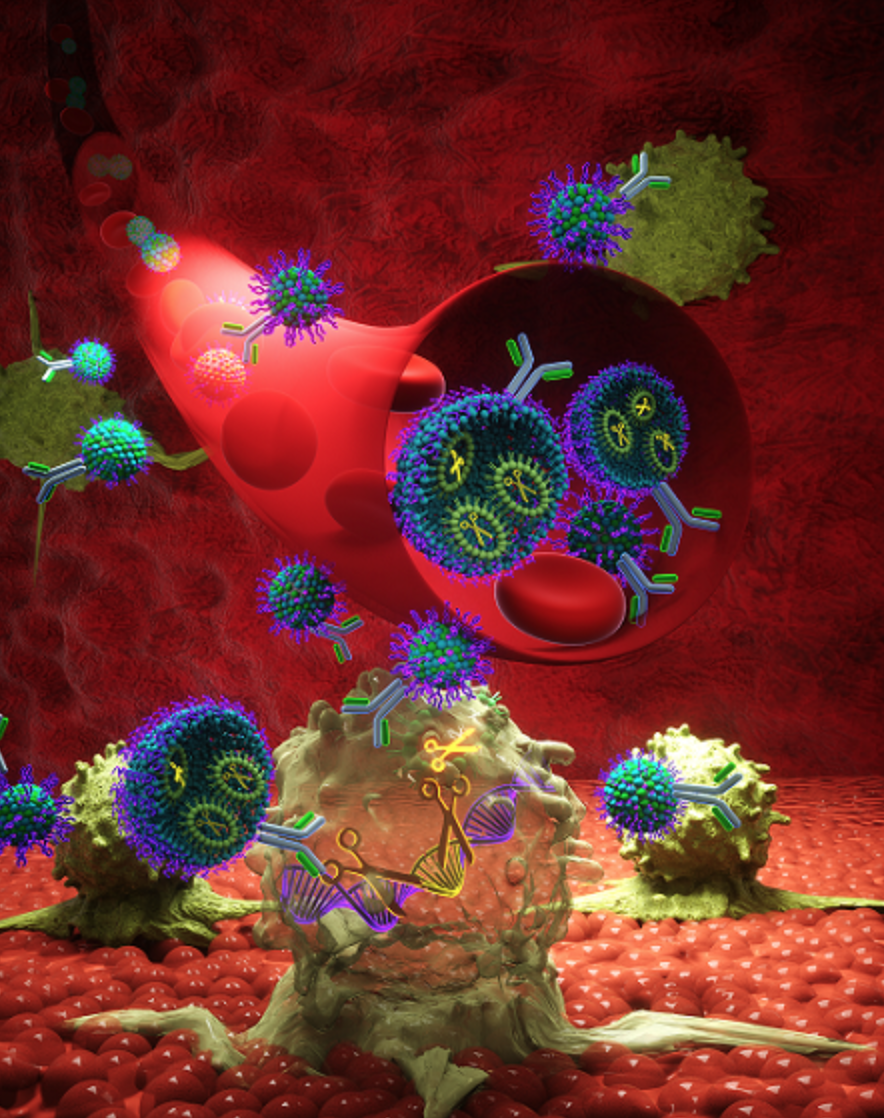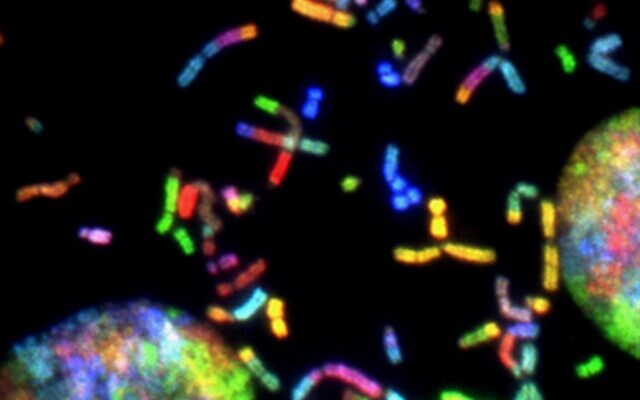Israeli scientists claim major cancer breakthrough using ‘tiny scissors’
Groundbreaking gene editing system using Nobel Prize-winning technology destroys cancerous cells while leaving everything around them intact.
Tali is a reporter at Jewish News
Israeli scientists have claimed a major breakthrough in the fight against cancer after using Nobel Prize winning technology to destroy cancerous cells in mice, leaving everything around them intact.
In what researchers have called a world first, the study from Tel Aviv University suggests the CRISPR Cas-9 gene editing system, which allows scientists to make precise alterations to DNA, can be used like “tiny scissors” to target and treat cancer in animals.
The technology, which gained its creators the Nobel Prize for Chemistry this year, was examined by cancer expert Professor Dan Peer, who said that there are “no side effects” from the process.
“This technology can extend the life expectancy of cancer patients and we hope, one day, cure the disease”, Prof. Peer said after his peer-reviewed research was published in the Science Advances journal.
“If we can use this technology, then within three treatments we can destroy a tumour. This technology can physically cut the DNA in cancerous cells, and those cells will not survive.”

Peer told the Times of Israel that there are hopes the process will eventually replace chemotherapy – a technique that, unlike the process used in the Tel Aviv study, is administered to the whole body.
His research involved hundreds of mice with two of the most aggressive types of cancer – glioblastoma, a brain cancer, and metastatic ovarian cancer.
The mice who received treatment were found to have double the life expectancy of the control group, with a 30 percent higher survival rate for glioblastoma and an 80 percent higher survival rate for metastatic ovarian cancer.
Peer said that his team plan to develop the treatment for all cancers and that the technique could be ready to use on humans within two years.
Treatment would be personalised to each patient based on a biopsy which would determine whether they received a general injection or an injection directly into the tumour.
“”It will probably take some time before the new treatment can be used in humans, but we are optimistic”, Professor Peer said.
“When we first spoke of treatments with mRNA twelve years ago, people thought it was science fiction.
“I believe that in the near future, we will see many personalized treatments based on genetic messengers – for both cancer and genetic diseases.”

Thank you for helping to make Jewish News the leading source of news and opinion for the UK Jewish community. Today we're asking for your invaluable help to continue putting our community first in everything we do.
For as little as £5 a month you can help sustain the vital work we do in celebrating and standing up for Jewish life in Britain.
Jewish News holds our community together and keeps us connected. Like a synagogue, it’s where people turn to feel part of something bigger. It also proudly shows the rest of Britain the vibrancy and rich culture of modern Jewish life.
You can make a quick and easy one-off or monthly contribution of £5, £10, £20 or any other sum you’re comfortable with.
100% of your donation will help us continue celebrating our community, in all its dynamic diversity...
Engaging
Being a community platform means so much more than producing a newspaper and website. One of our proudest roles is media partnering with our invaluable charities to amplify the outstanding work they do to help us all.
Celebrating
There’s no shortage of oys in the world but Jewish News takes every opportunity to celebrate the joys too, through projects like Night of Heroes, 40 Under 40 and other compelling countdowns that make the community kvell with pride.
Pioneering
In the first collaboration between media outlets from different faiths, Jewish News worked with British Muslim TV and Church Times to produce a list of young activists leading the way on interfaith understanding.
Campaigning
Royal Mail issued a stamp honouring Holocaust hero Sir Nicholas Winton after a Jewish News campaign attracted more than 100,000 backers. Jewish Newsalso produces special editions of the paper highlighting pressing issues including mental health and Holocaust remembrance.
Easy access
In an age when news is readily accessible, Jewish News provides high-quality content free online and offline, removing any financial barriers to connecting people.
Voice of our community to wider society
The Jewish News team regularly appears on TV, radio and on the pages of the national press to comment on stories about the Jewish community. Easy access to the paper on the streets of London also means Jewish News provides an invaluable window into the community for the country at large.
We hope you agree all this is worth preserving.






















